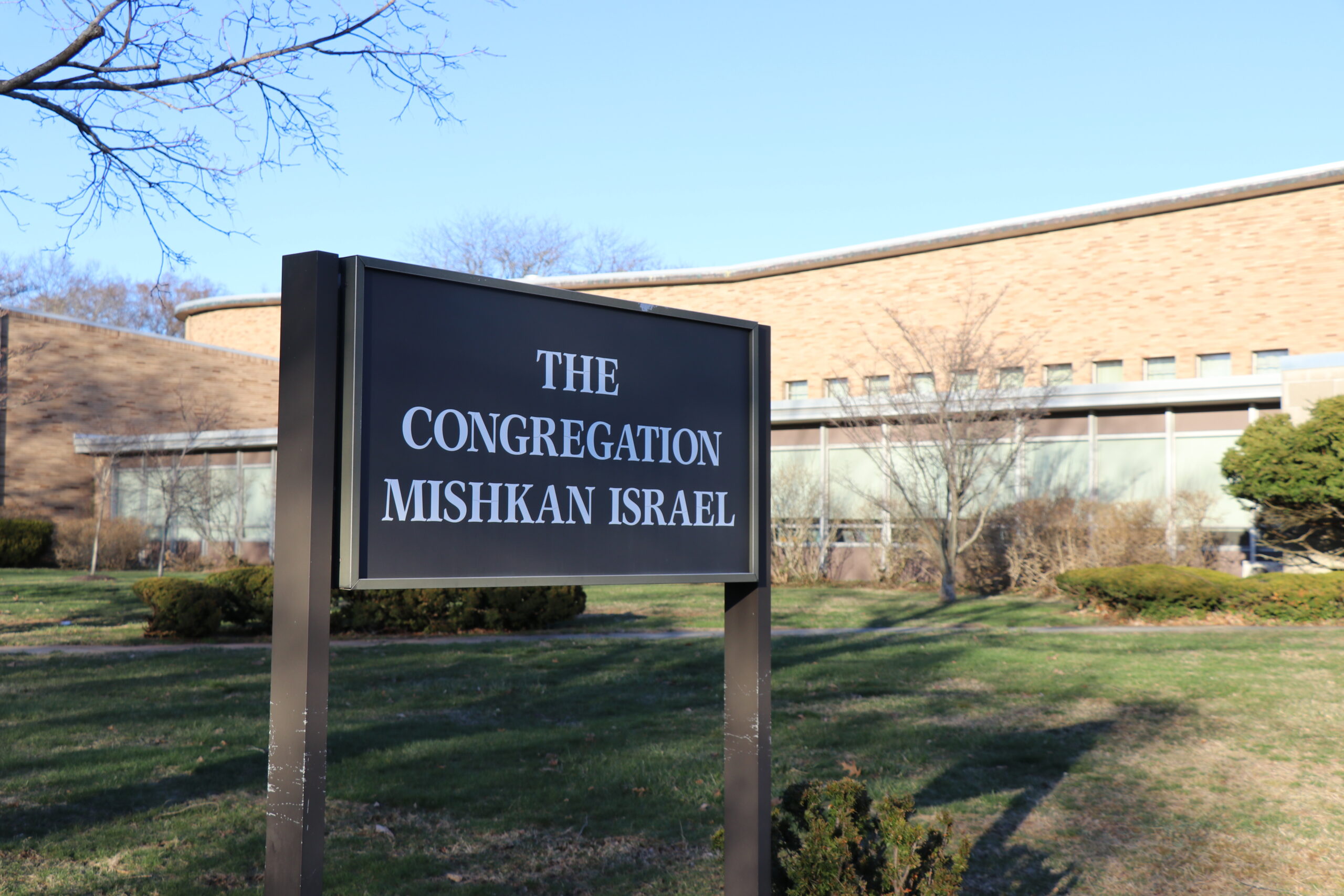Three local faith groups join lawsuit against Trump’s recall of place of worship protection in immigration crackdown
If successful, the lawsuit would establish legal protections for houses of worship from interference by federal immigration authorities.

Christina Lee, Head Photography Editor
Three local faith groups, which offered sanctuary to undocumented immigrants during the first Trump administration, recently joined a lawsuit that would prohibit federal immigration authorities from interfering in places of worship.
The lawsuit followed the Department of Homeland Security’s Jan. 20 rescission of a Biden-era guideline protecting schools, hospitals and congregations from intrusion by federal immigration authorities. In February, 27 national and regional denominations signed on as plaintiffs, including the parent denominations for New Haven’s First Presbyterian Church, First and Summerfield United Methodist Church, and Congregation Mishkan Israel.
Another lawsuit filed two weeks later, involving regional Quaker, Baptist and Sikh congregations, prompted a Maryland judge to temporarily block federal immigration authorities from entering these congregations. However, that lawsuit’s ruling does not provide legal protections for other congregations, not involved in the lawsuit.
Glen Formica, a New Haven attorney who has worked on legal cases involving sanctuary in churches, said that the lawsuit involving New Haven congregations challenges the “fear narrative” that the current presidential administration is “aggressively” advancing.
“They want to create this narrative of fear that says, ‘nowhere are you safe,’” Formica said. “‘We’ll pull you out of a church pew, we’ll wheel you out of a hospital bed, and we’ll come into your schools and grab your children.’”
Although there is a precedent for federal immigration authorities not entering houses of worship — based on the 2011 Department of Homeland Security memorandum of understanding, which prohibits authorities from entering “sensitive locations” like churches — there is no legal basis, according to Formica.
Formica believes that no other president has tried to revoke the guideline because it would invite “bad political optics.”
“What does it say for us as a society that this administration is so willing to engage in activities that most, if not all, Americans would find deeply morally repugnant?” said Kica Matos, who heads the National Immigration Law Center and is a former executive director of New Haven’s Junta for Progressive Action. “Not even places of worship are sacred.”
Rabbi Herb Brockman, the rabbi emeritus of Hamden’s Congregation Mishkan Israel, which is associated with the Union of Reform Judaism, is also joining the lawsuit. He described the deportations during the current Trump administration as “chaotic,” even compared to his previous administration.
Brockman mentioned that during the previous Trump administration, people were sometimes given up to 30 days before they would be deported. Now, the timeline has changed.
Formica echoed this sentiment, describing the differences between the current Trump administration and the previous one as “night and day.”
“The first Trump administration was pretty restrained compared to where they’re at now,” Formica said. “This is next level. They’re trying to run a psychological operation to frighten, terrorize and motivate all foreign nationals to leave.”
All three congregations involved in the lawsuit were members of a loose coalition of 13 houses of worship willing to provide sanctuary and legal aid for undocumented immigrants during the first Trump administration. Brockman, Matos, Pastor Héctor Otero and Reverend Paul Fleck spearheaded the movement shortly after Trump’s 2016 election.
As a collective, the coalition provided refuge for nine people throughout the first Trump administration, eight of whom left sanctuary after receiving legal relief, according to Fleck.
Fleck and Matos stressed that the revocation of immigration protections for houses of worship has upped the stakes for congregations that have been willing to provide sanctuary in the past.
“Congregations that used to offer sanctuary have had to weigh whether they’re willing to openly defy the government,” Matos said.
She explained that some national houses of worship have shifted away from providing sanctuary to other forms of support for immigrants, such as organizing food pantries and accompanying congregation members to court hearings.
Fleck believes that federal immigration authorities will primarily detain undocumented people on the streets and disregard those seeking sanctuary in houses of worship. He worries that this will force undocumented people to remain in sanctuary for an extended period, creating a “tremendous drain” for congregation resources.
The Department of Homeland Security was founded in 2002 by then-President George W. Bush.
Interested in getting more news about New Haven? Join our newsletter!







